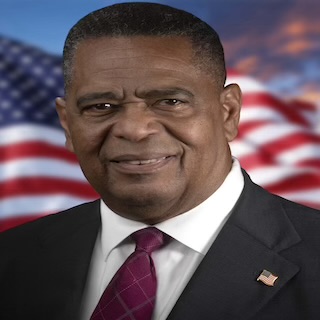This past weekend, Venezuelan dictator Nicolas Maduro dismissed as “spies” members of a European Union electoral observation mission sent to observe the recent regional elections.
The outcry from Maduro came after the observers said the elections were generally better conducted than previous years, although there were concerns over arbitrary bans on candidates, delays in opening voting centers and “extended use of state resources in the campaign.”
“A delegation of spies – they weren’t observers – wandered freely around the country, spying on the country’s social, economic and political life,” Maduro said during a broadcast on state television, adding that the elections were “impeccable, beautiful”.
However, the recent gubernatorial elections, where Maduro’s party won by a landslide, capturing 20 governor posts while conceding three to the opposition, have been denounced around the world as a mere sham.
The sham election results don’t give outside groups and exiled Venezuelan much hope that the ongoing economic and humanitarian crisis created by Maduro would end anytime soon.
“The crisis in Venezuela poses one of the biggest challenges to democracy and human rights in the hemisphere today, and the need to address the country’s complex humanitarian emergency is more urgent than ever,” states a recent report published by the Washington Office on Latin America (WOLA), The Crisis Can’t Wait: How U.S. Policymakers Can Support Humanitarian Accords in Venezuela.
“Aid is not, in itself, sufficient to resolve Venezuela’s political, economic, and humanitarian crisis” states the report, which was co-authored by Geoff Ramsey, WOLA’s Director for Venezuela and Kristen Martinez-Gugerli, WOLA’s Program Associate for Venezuela.. “The reality is that Venezuela will not see a comprehensive solution without a set of broader political agreements. However, humanitarian agreements provide the opportunity to address the most urgent needs of Venezuela’s most vulnerable sectors. If implemented well, such agreements may also serve as a way of building momentum towards a comprehensive political solution.”
The report acknowledges that the U.S. “has made significant contributions to the humanitarian response as the primary donor to the UN Humanitarian Response Plan for Venezuela,” however, it encourages the Biden administration to “do much more to encourage agreements to address Venezuela’s humanitarian crisis, contribute to the country’s COVID-19 response, and generate support among its international allies to commit more resources to the UN response.”
Specifically, the report urges the Biden administration to:
- Name a high-level State Department official in Washington—either a Special Representative or a Deputy Assistant Secretary with a portfolio focused exclusively on Venezuela’s crisis and regional implications.
- Direct senior State Department and Department of Health and Human Services (HHS) officials to make clear that the U.S. government is willing to include Venezuela in its COVID-19 vaccine donation program, and to address logistical and transparency obstacles.
- Urge the publication of a national COVID-19 vaccination plan in line with international standards in Venezuela.
- Emphasize the role of the UN and non-governmental organizations in the successful implementation of any humanitarian agreement, given widespread government corruption.
- Press for a response that addresses the differential impact of the humanitarian situation on specific segments of the population including indigenous people, individuals with disabilities, immunocompromised individuals and those taking antiretrovirals, and others in conditions of vulnerability.
- Encourage relevant stakeholders in Venezuela to prioritize humanitarian agreements that address the differentiated impact of Venezuela’s crisis on women and girls.
- Provide necessary human resources and other support to the Office of Foreign Assets Control (OFAC), so that it can move quickly once agreements are made—and avoid delays that could derail them. While sanctions have become an increasingly popular foreign policy tool, OFAC does not generally have the resources or personnel to respond quickly to changing events on the ground.
- Prioritize humanitarian agreements strictly based on their ability to address urgent concerns in accordance with humanitarian principles—not on a logic of taking political credit.
- Support agreements that broaden access for, and end the repression of, humanitarian organizations on the ground.
- Commit to fully-funding the UN Humanitarian Response Plan (HRP) for Venezuela for 2021. Although the United Nations’ 2021 HRP for Venezuela requests $708.1 million, only 29.4 percent of this ($208.1 million) has been funded as of November 15, 2021. The United States, the primary donor, has contributed to assistance outside the plan, but this aid amounts to only $101 million. Further commitments are urgently needed.”




